Atomic Variables
Volatile Example
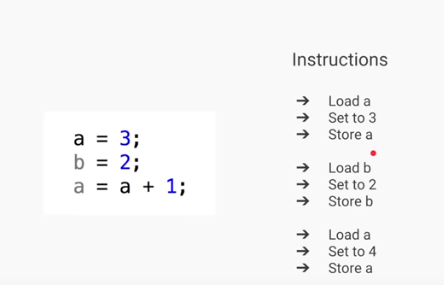
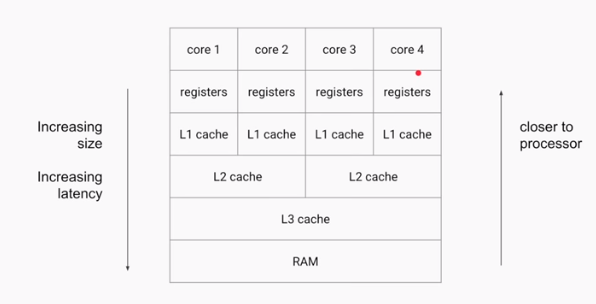

-
If writerThread() is executed by one thread & readerThread() is executed by another thread
-
the ‘x’ value is different for two threads because they are reading value from their LocalCache.
-
Here the changes of X value is not visible globally (Field Visibility), because they are changing in LocalCache.
To avoid this, we need to use ‘volatile’ keyword for fields.
-
The Java volatile keyword is used to mark a Java variable as “being stored in main memory”.
-
that means, every read of a volatile variable will be read from the main memory(Shared Memory), and not from the CPU cache
-
every write to a volatile variable will be written to main memory, and not just to the CPU cache.
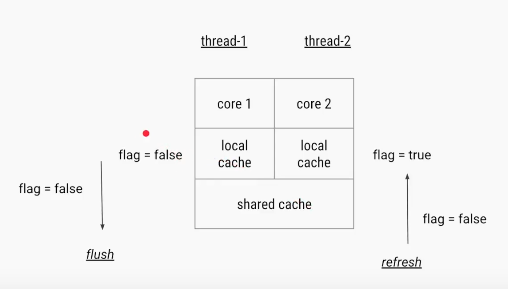
-
In the above diagram two threads t1, t2 are trying to change the value of flag.
-
If Thread1 changes value flag=false, then it will flush(push) the changes from LocalCache to SharedCache and it will refresh the all Thread LocalCaches with updated value.
-
If Thread 2 is trying to read, it will get updated value.
-
Volatile solves the visibility problem, where Only one operation is perform
Amtomic Problem
Atomic - forming a single irreducible unit or component in a larger system.
Increment (++) is an Compound Operation(multiple). AtomicVaribles makes compound operations as Atomic(Single)
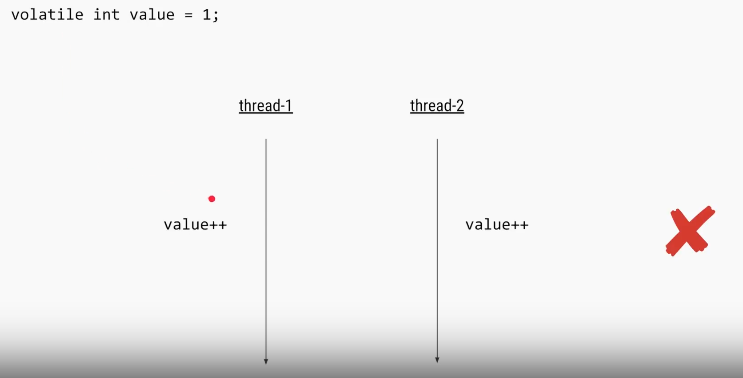
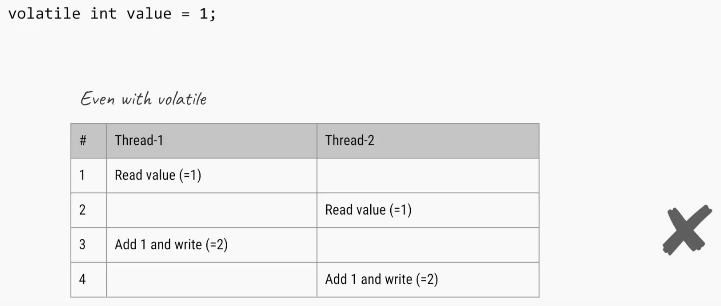
We can solve this problem using Synchronization
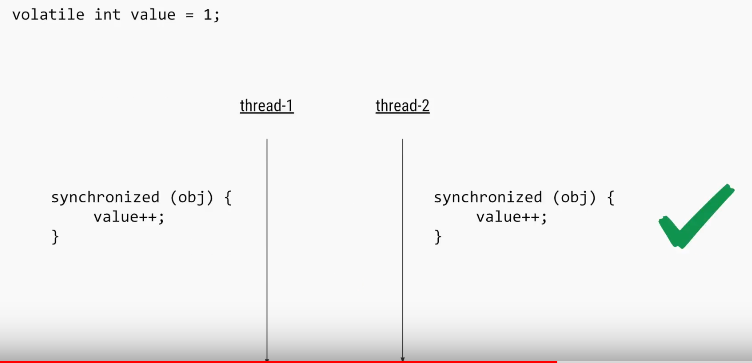
Another Way using Atomic Variables
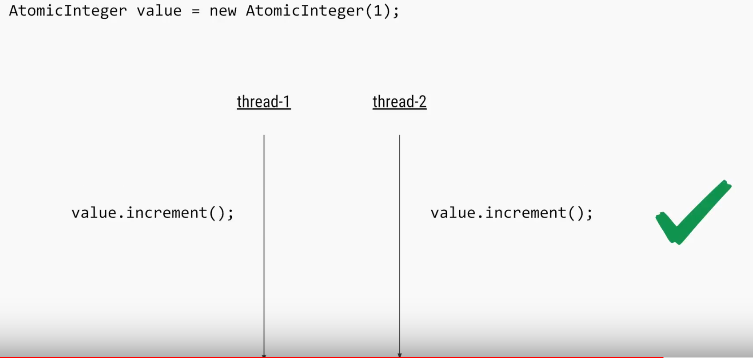
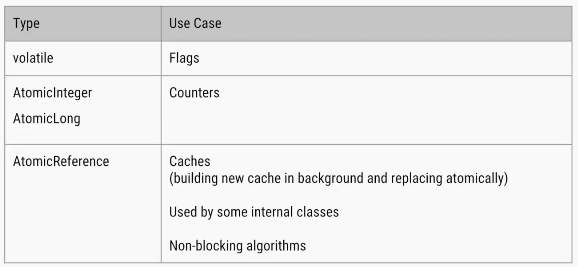
Atomic Varibles
The java.util.concurrent.atomic package defines classes that support atomic operations on single variables. All classes have get and set methods that work like reads and writes on volatile variables.
We have following Atomic classes
-
AtomicInteger
-
AtomicLong
-
AtomicBoolean
-
AtomicReference
-
AtomicIntegerArray
-
AtomicLongArray
-
AtomicReferenceArray
Common methods
-
incrementAndGet(): Atomically increments by one the current value.
-
decrementAndGet(): Atomically decrements by one the current value.
-
addAndGet(int delta): Atomically adds the given value to the current value.
-
compareAndSet(int expect, int update): Atomically sets the value to the given updated value if the current value == the expected value.
-
getAndAdd(int delta): Atomically adds the given value to the current value.
-
set(int newValue): Sets to the given value.
Terms
Liveness(live-less):
A liveness failure occurs when an activity gets into a state such that it is permanently unable to make forward progress. For example, if thread A is waiting for a resource that thread B holds exclusively, and B never releases it, A will wait forever.
Race Conditions
A race condition occurs when the correctness of a computation depends on the relative timing or interleaving of multiple threads by the runtime; in other words, when getting the right answer relies on lucky timing.